Jenin and the endless cycle of Palestinian displacement
Refugee camp at the heart of a struggle around demographics, displacement and mobility
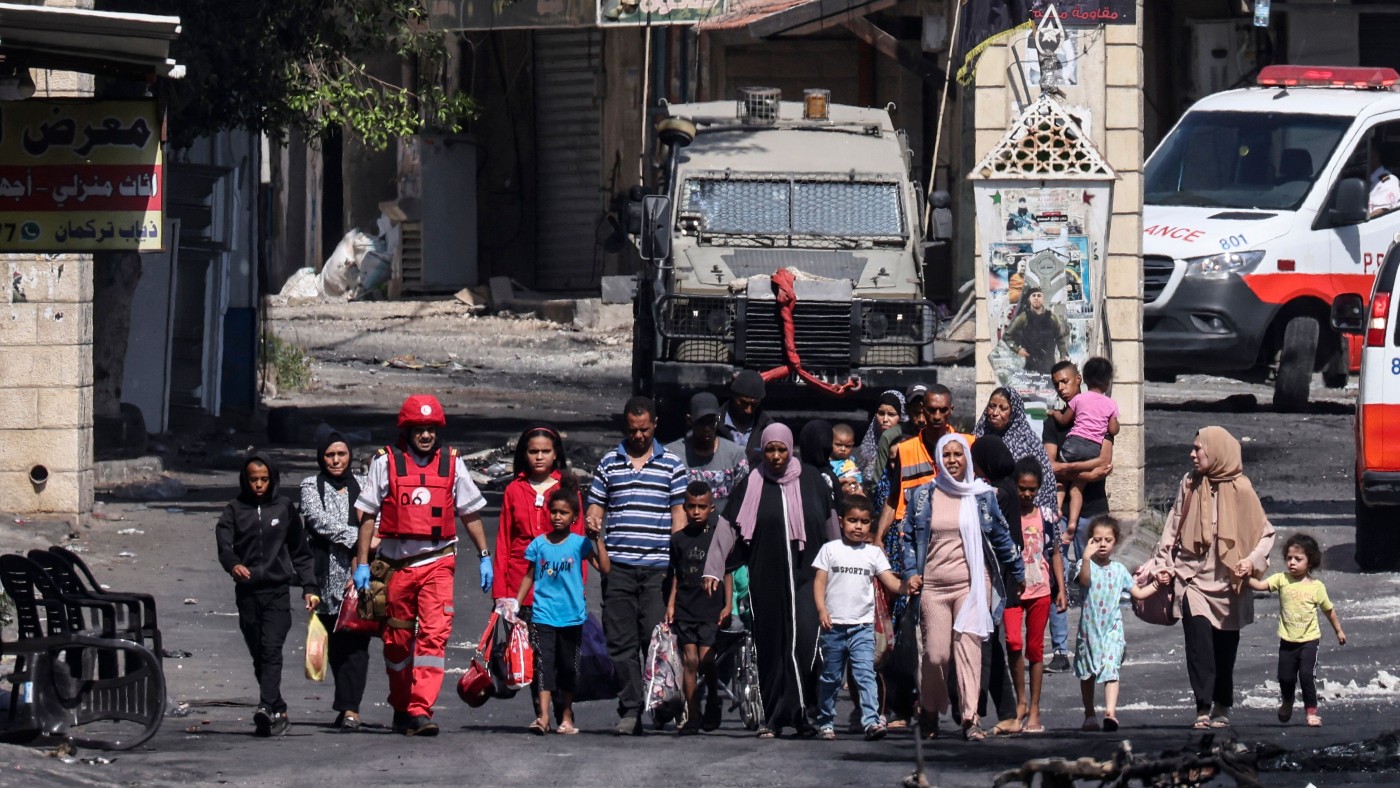
A free daily email with the biggest news stories of the day – and the best features from TheWeek.com
You are now subscribed
Your newsletter sign-up was successful
Anne Irfan, lecturer at UCL explains how the Israeli military operation in Jenin highlights a struggle around demographics, displacement and mobility.
The Israeli army’s recent attack on Jenin refugee camp resulted in 13 deaths (12 Palestinians, including four children, and one Israeli soldier killed by suspected friendly fire). An additional 143 Palestinians were injured, with 20 in critical condition, and up to 4,000 displaced.
While this mass displacement has received less media attention than other aspects of the Israeli operation, it is central to understanding the region’s politics.
The Week
Escape your echo chamber. Get the facts behind the news, plus analysis from multiple perspectives.

Sign up for The Week's Free Newsletters
From our morning news briefing to a weekly Good News Newsletter, get the best of The Week delivered directly to your inbox.
From our morning news briefing to a weekly Good News Newsletter, get the best of The Week delivered directly to your inbox.
Forced migration has always been core to the dynamics of modern Palestine and Israel. Most Palestinians are refugees, and Israel’s occupation of the West Bank and Gaza Strip is organised around control of movement.
While often framed as a fight over religion and ideology, this is ultimately a struggle around demographics, displacement and mobility.
Why is Jenin a refugee camp?
Much of the social media rhetoric on Jenin this week has asked why there is a refugee camp in the West Bank. It’s a question that reflects widespread historical ignorance both in Israel and across the west. In fact, there are 19 refugee camps in the West Bank, and eight in the Gaza Strip. More than 2 million Palestinians across the two territories are registered by the United Nations (UN) as refugees – and their original dispossession goes to the heart of the violence today.
When the state of Israel was established in 1948, it took over 78% of Palestine (much more than the 55% that the UN had originally allocated to the nascent Jewish state). Around three-quarters of the Palestinian population – 750,000 people – became refugees, expelled directly by Zionist militias or fleeing to escape massacres and other violence.
A free daily email with the biggest news stories of the day – and the best features from TheWeek.com
These events are known by Palestinians as the Nakba (“the catastrophe”), and are commemorated annually by refugee communities across the Middle East.
In the immediate aftermath of the Nakba, the refugees sought shelter in the neighbouring Arab states and the two areas of Palestine that did not become part of Israel: the West Bank (including East Jerusalem) and the Gaza Strip. Camps were built to house those with nowhere else to go. Jenin was one such camp, predominantly sheltering refugees from Haifa and Nazareth.
At the end of 1948, the UN passed Resolution 194, calling for the refugees to be allowed to return to their homes at the earliest opportunity. Successive Israeli governments consistently opposed this, and with no resolution, the refugees have remained in exile and in limbo.
Fast forward to 2023 and Jenin has now sheltered more than three generations of refugees. It is home to more than 14,000 people, surviving on less than half a square kilometre of land. When up to 4,000 Palestinians were displaced from the camp this week, they became refugees twice over. This is not the first time this has happened – Israel’s previous attack on Jenin in 2002 also displaced 4,000 people, more than a quarter of the camp’s population at the time.
Why displacement matters
The displacement of Palestinians did not end in 1948 but has continued for 75 years. In 1967, the Israeli army occupied the two parts of Palestine not subsumed in 1948: the West Bank and the Gaza Strip (known thereafter as the Occupied Palestinian Territories or OPT). As a result, nearly 400,000 Palestinians became refugees, more than half for the second time. Jordan established six new refugee camps to house them.
The Israeli occupation places millions of civilians under martial law. Displacement and immobility are core features of the regime. The construction of illegal Israeli settlements often entails both, uprooting existing Palestinian communities and curtailing their freedom of movement by seizing land across the territory.
In addition to land grab, other Israeli measures that cause continual Palestinian displacement include forcible evictions, house demolitions, denial of residency rights, and discriminatory planning and zoning. This means that Palestinians must live with the constant threat of displacement hanging over them, and no protection of their civil rights as a population under occupation.
In all cases, Palestinians across the occupied territories struggle to negotiate their rights without the claims of citizenship. Recent high-profile cases of forcible displacement include Israeli eviction orders against Palestinians in the East Jerusalem neighbourhood of Sheikh Jarrah to make room for Israeli settlers. In the southern West Bank, Palestinian communities in Masafer Yaffa are facing expulsion as Israel appropriates the land for military training.
Meanwhile, Palestinians in Gaza face displacement of a different kind. Although Israel withdrew its settlements from the Gaza Strip in 2005, Palestinians there have continued to lose their homes due to ongoing waves of violence. Some 72,000 were displaced during the 2021 air attack on Gaza, as 2,200 homes were destroyed and another 37,000 damaged.
As around 70% of the Gaza population are refugees, this figure is a stark reminder of the continual nature of Palestinian forced migration. Many Palestinians now speak of “ongoing Nakba” to reflect this reality.
All this is possible because the Palestinians’ statelessness deprives them of basic rights. While discussions about the peace process is often framed in terms of conflict resolution and security, for many Palestinians the real priority is ending their dispersal and displacement.
The attack on Jenin may have now ended, but there is no bigger resolution in sight – and no sign that the continual rounds of Palestinian displacement will end any time soon.
Anne Irfan, Lecturer, UCL
This article is republished from The Conversation under a Creative Commons license. Read the original article.
-
 10 things you need to know today: January 21, 2024
10 things you need to know today: January 21, 2024Daily Briefing Palestinian death toll reportedly passes 25,000, top Biden adviser to travel to Egypt and Qatar for hostage talks, and more
-
 10 things you need to know today: January 20, 2024
10 things you need to know today: January 20, 2024Daily Briefing Grand jury reportedly convened to investigate Uvalde shooting response, families protest outside Netanyahu's house as pressure mounts for hostage deal, and more
-
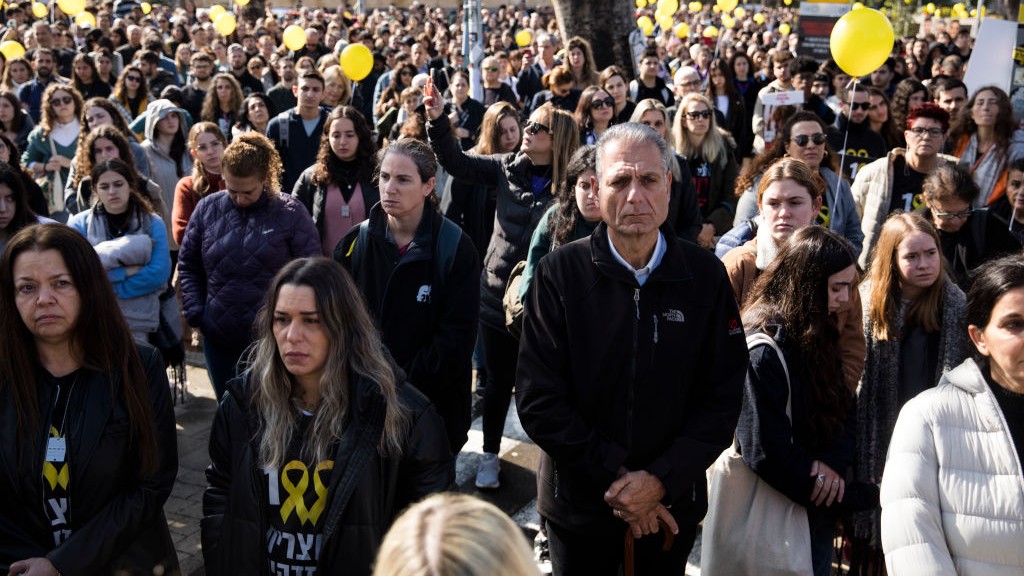 10 things you need to know today: January 14, 2024
10 things you need to know today: January 14, 2024Daily Briefing Israel and Hamas mark 100th day of war, GOP candidates campaign on final day before Iowa caucuses, and more
-
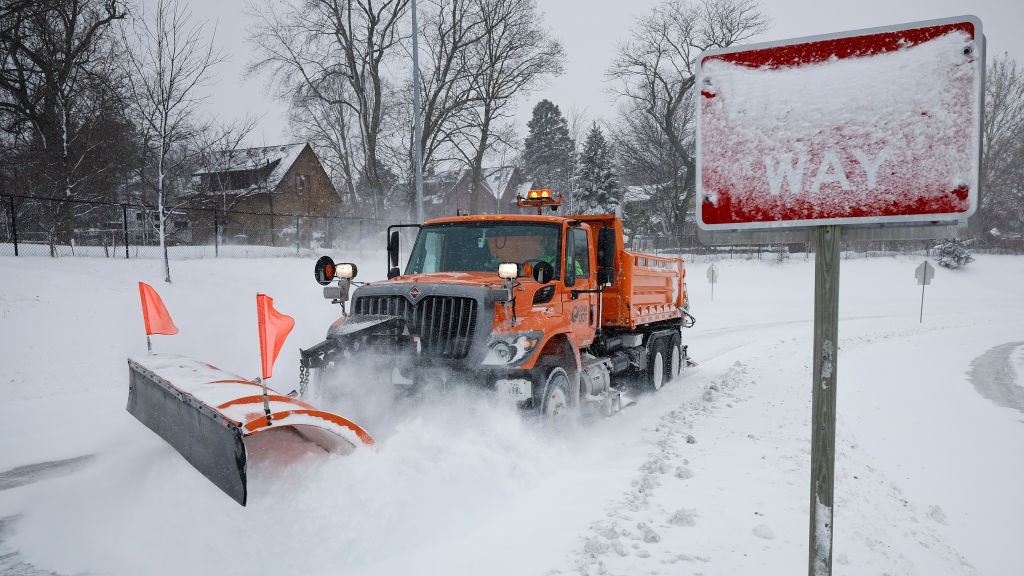 10 things you need to know today: January 13, 2024
10 things you need to know today: January 13, 2024Daily Briefing Winter storm blankets large swath of northern United States, more than 30 Palestinians killed during overnight airstrike in Gaza, and more
-
 10 things you need to know today: December 16, 2023
10 things you need to know today: December 16, 2023Daily Briefing Rudy Giuliani ordered to pay $148M to defamed election workers, Israeli hostages mistakenly killed by IDF were reportedly waving white flag, and more
-
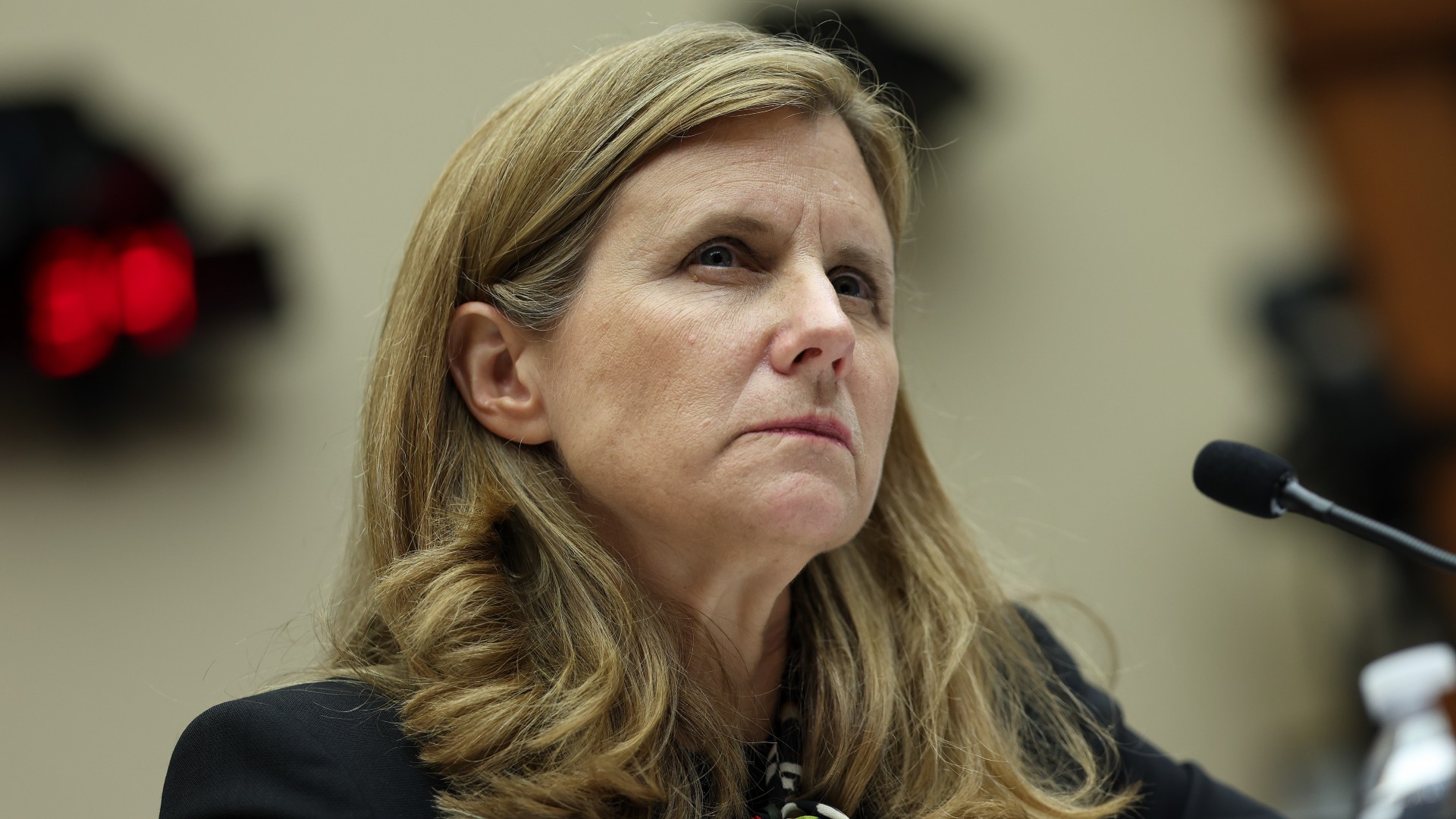 10 things you need to know today: December 10, 2023
10 things you need to know today: December 10, 2023Daily Briefing Fighting continues across Gaza Strip as Israeli tanks reach city center, University of Pennsylvania president resigns after antisemitism testimony, and more
-
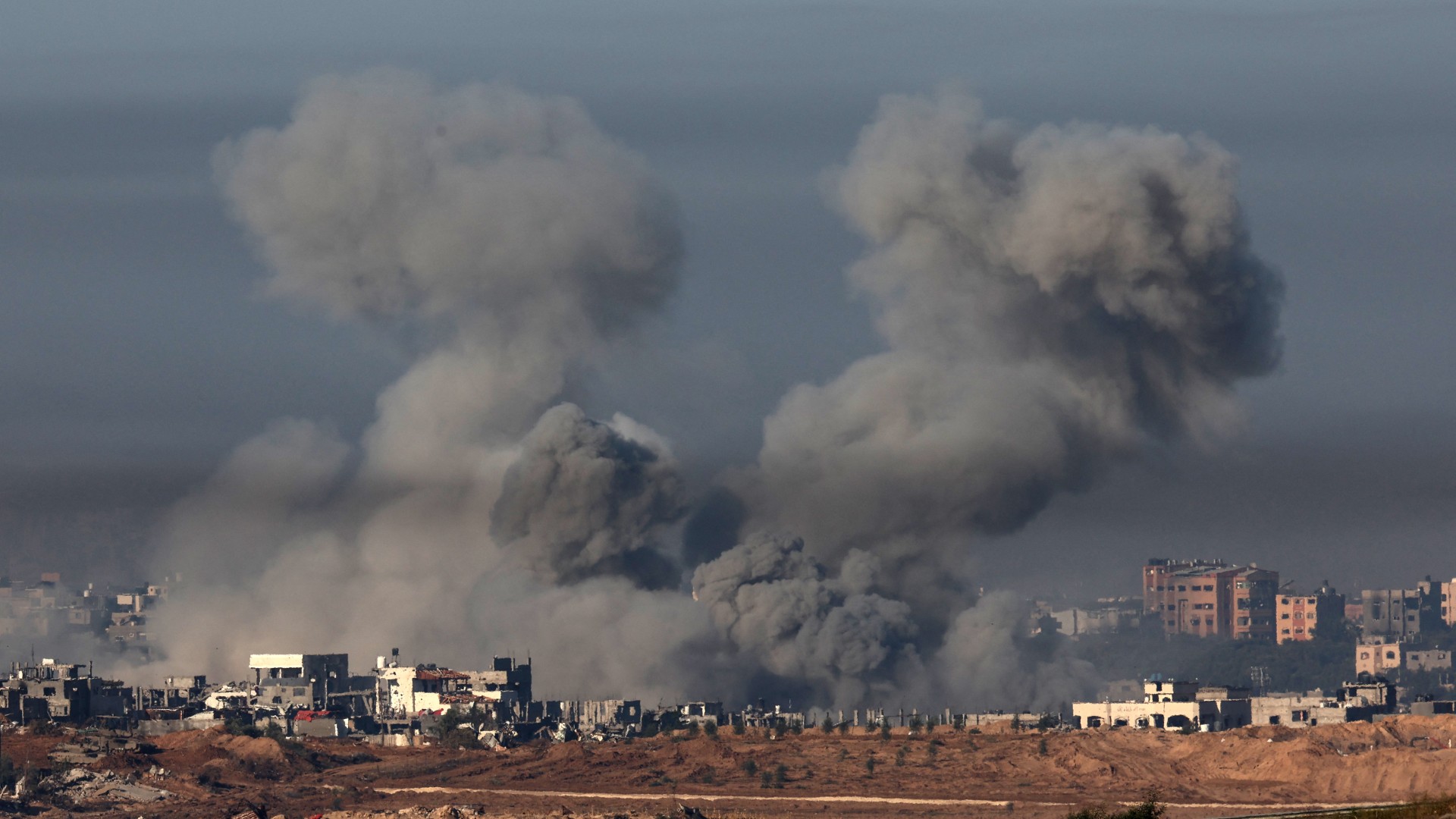 10 things you need to know today: December 3, 2023
10 things you need to know today: December 3, 2023Daily Briefing Gaza residents flee as Israel continues bombardment, Trump tells supporters to 'guard the vote' in Democratic cities, and more
-
 10 things you need to know today: December 2, 2023
10 things you need to know today: December 2, 2023Daily Briefing Death toll climbs in Gaza as airstrikes intensify, George Santos expelled from the House of Representatives, and more


